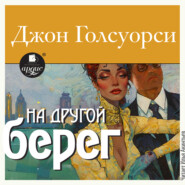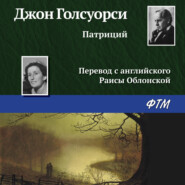По всем вопросам обращайтесь на: info@litportal.ru
(©) 2003-2024.
✖
Beyond
Настройки чтения
Размер шрифта
Высота строк
Поля
“Have you still got your key of Bury Street? Good! Remember, Gyp – any time day or night – there it is for you.”
She had wired to Fiorsen from Mildenham that she was coming, and she reached home soon after three. He was not in, and what was evidently her telegram lay unopened in the hall. Tremulous with expectation, she ran up to the nursery. The pathetic sound of some small creature that cannot tell what is hurting it, or why, met her ears. She went in, disturbed, yet with the half-triumphant thought: ‘Perhaps that’s for me!’
Betty, very flushed, was rocking the cradle, and examining the baby’s face with a perplexed frown. Seeing Gyp, she put her hand to her side, and gasped:
“Oh, be joyful! Oh, my dear! I AM glad. I can’t do anything with baby since the morning. Whenever she wakes up, she cries like that. And till to-day she’s been a little model. Hasn’t she! There, there!”
Gyp took up the baby, whose black eyes fixed themselves on her mother in a momentary contentment; but, at the first movement, she began again her fretful plaint. Betty went on:
“She’s been like that ever since this morning. Mr. Fiorsen’s been in more than once, ma’am, and the fact is, baby don’t like it. He stares at her so. But this morning I thought – well – I thought: ‘You’re her father. It’s time she was getting used to you.’ So I let them be a minute; and when I came back – I was only just across to the bathroom – he was comin’ out lookin’ quite fierce and white, and baby – oh, screamin’! And except for sleepin’, she’s hardly stopped cryin’ since.”
Pressing the baby to her breast, Gyp sat very still, and queer thoughts went through her mind.
“How has he been, Betty?” she said.
Betty plaited her apron; her moon-face was troubled.
“Well,” she said, “I think he’s been drinkin’. Oh, I’m sure he has – I’ve smelt it about him. The third day it began. And night before last he came in dreadfully late – I could hear him staggerin’ about, abusing the stairs as he was comin’ up. Oh dear – it IS a pity!”
The baby, who had been still enough since she lay in her mother’s lap, suddenly raised her little voice again. Gyp said:
“Betty, I believe something hurts her arm. She cries the moment she’s touched there. Is there a pin or anything? Just see. Take her things off. Oh – look!”
Both the tiny arms above the elbow were circled with dark marks, as if they had been squeezed by ruthless fingers. The two women looked at each other in horror; and under her breath Gyp said: “He!”
She had flushed crimson; her eyes filled but dried again almost at once. And, looking at her face, now gone very pale, and those lips tightened to a line, Betty stopped in her outburst of ejaculation. When they had wrapped the baby’s arm in remedies and cotton-wool, Gyp went into her bedroom, and, throwing herself down on her bed, burst into a passion of weeping, smothering it deep in her pillow.
It was the crying of sheer rage. The brute! Not to have control enough to stop short of digging his claws into that precious mite! Just because the poor little thing cried at that cat’s stare of his! The brute! The devil! And he would come to her and whine about it, and say: “My Gyp, I never meant – how should I know I was hurting? Her crying was so – Why should she cry at me? I was upset! I wasn’t thinking!” She could hear him pleading and sighing to her to forgive him. But she would not – not this time! He had hurt a helpless thing once too often. Her fit of crying ceased, and she lay listening to the tick of the clock, and marshalling in her mind a hundred little evidences of his malevolence toward her baby – his own baby. How was it possible? Was he really going mad? And a fit of such chilly shuddering seized her that she crept under the eider down to regain warmth. In her rage, she retained enough sense of proportion to understand that he had done this, just as he had insulted Monsieur Harmost and her father – and others – in an ungovernable access of nerve-irritation; just as, perhaps, one day he would kill someone. But to understand this did not lessen her feeling. Her baby! Such a tiny thing! She hated him at last; and she lay thinking out the coldest, the cruellest, the most cutting things to say. She had been too long-suffering.
But he did not come in that evening; and, too upset to eat or do anything, she went up to bed at ten o’clock. When she had undressed, she stole across to the nursery; she had a longing to have the baby with her – a feeling that to leave her was not safe. She carried her off, still sleeping, and, locking her doors, got into bed. Having warmed a nest with her body for the little creature, she laid it there; and then for a long time lay awake, expecting every minute to hear him return. She fell asleep at last, and woke with a start. There were vague noises down below or on the stairs. It must be he! She had left the light on in her room, and she leaned over to look at the baby’s face. It was still sleeping, drawing its tiny breaths peacefully, little dog-shivers passing every now and then over its face. Gyp, shaking back her dark plaits of hair, sat up by its side, straining her ears.
Yes; he WAS coming up, and, by the sounds, he was not sober. She heard a loud creak, and then a thud, as if he had clutched at the banisters and fallen; she heard muttering, too, and the noise of boots dropped. Swiftly the thought went through her: ‘If he were quite drunk, he would not have taken them off at all; – nor if he were quite sober. Does he know I’m back?’ Then came another creak, as if he were raising himself by support of the banisters, and then – or was it fancy? – she could hear him creeping and breathing behind the door. Then – no fancy this time – he fumbled at the door and turned the handle. In spite of his state, he must know that she was back, had noticed her travelling-coat or seen the telegram. The handle was tried again, then, after a pause, the handle of the door between his room and hers was fiercely shaken. She could hear his voice, too, as she knew it when he was flown with drink, thick, a little drawling.
“Gyp – let me in – Gyp!”
The blood burned up in her cheeks, and she thought: ‘No, my friend; you’re not coming in!’
After that, sounds were more confused, as if he were now at one door, now at the other; then creakings, as if on the stairs again, and after that, no sound at all.
For fully half an hour, Gyp continued to sit up, straining her ears. Where was he? What doing? On her over-excited nerves, all sorts of possibilities came crowding. He must have gone downstairs again. In that half-drunken state, where would his baffled frenzies lead him? And, suddenly, she thought that she smelled burning. It went, and came again; she got up, crept to the door, noiselessly turned the key, and, pulling it open a few inches, sniffed.
All was dark on the landing. There was no smell of burning out there. Suddenly, a hand clutched her ankle. All the blood rushed from her heart; she stifled a scream, and tried to pull the door to. But his arm and her leg were caught between, and she saw the black mass of his figure lying full-length on its face. Like a vice, his hand held her; he drew himself up on to his knees, on to his feet, and forced his way through. Panting, but in utter silence, Gyp struggled to drive him out. His drunken strength seemed to come and go in gusts, but hers was continuous, greater than she had ever thought she had, and she panted:
“Go! go out of my room – you – you – wretch!”
Then her heart stood still with horror, for he had slued round to the bed and was stretching his hands out above the baby. She heard him mutter:
“Ah-h-h! – YOU – in my place – YOU!”
Gyp flung herself on him from behind, dragging his arms down, and, clasping her hands together, held him fast. He twisted round in her arms and sat down on the bed. In that moment of his collapse, Gyp snatched up her baby and fled out, down the dark stairs, hearing him stumbling, groping in pursuit. She fled into the dining-room and locked the door. She heard him run against it and fall down. Snuggling her baby, who was crying now, inside her nightgown, next to her skin for warmth, she stood rocking and hushing it, trying to listen. There was no more sound. By the hearth, whence a little heat still came forth from the ashes, she cowered down. With cushions and the thick white felt from the dining-table, she made the baby snug, and wrapping her shivering self in the table-cloth, sat staring wide-eyed before her – and always listening. There were sounds at first, then none. A long, long time she stayed like that, before she stole to the door. She did not mean to make a second mistake. She could hear the sound of heavy breathing. And she listened to it, till she was quite certain that it was really the breathing of sleep. Then stealthily she opened, and looked. He was over there, lying against the bottom chair, in a heavy, drunken slumber. She knew that sleep so well; he would not wake from it.
It gave her a sort of evil pleasure that they would find him like that in the morning when she was gone. She went back to her baby and, with infinite precaution, lifted it, still sleeping, cushion and all, and stole past him up the stairs that, under her bare feet, made no sound. Once more in her locked room, she went to the window and looked out. It was just before dawn; her garden was grey and ghostly, and she thought: ‘The last time I shall see you. Good-bye!’
Then, with the utmost speed, she did her hair and dressed. She was very cold and shivery, and put on her fur coat and cap. She hunted out two jerseys for the baby, and a certain old camel’s-hair shawl. She took a few little things she was fondest of and slipped them into her wrist-bag with her purse, put on her hat and a pair of gloves. She did everything very swiftly, wondering, all the time, at her own power of knowing what to take. When she was quite ready, she scribbled a note to Betty to follow with the dogs to Bury Street, and pushed it under the nursery door. Then, wrapping the baby in the jerseys and shawl, she went downstairs. The dawn had broken, and, from the long narrow window above the door with spikes of iron across it, grey light was striking into the hall. Gyp passed Fiorsen’s sleeping figure safely, and, for one moment, stopped for breath. He was lying with his back against the wall, his head in the hollow of an arm raised against a stair, and his face turned a little upward. That face which, hundreds of times, had been so close to her own, and something about this crumpled body, about his tumbled hair, those cheek-bones, and the hollows beneath the pale lips just parted under the dirt-gold of his moustache – something of lost divinity in all that inert figure – clutched for a second at Gyp’s heart. Only for a second. It was over, this time! No more – never again! And, turning very stealthily, she slipped her shoes on, undid the chain, opened the front door, took up her burden, closed the door softly behind her, and walked away.
Part III
I
Gyp was going up to town. She sat in the corner of a first-class carriage, alone. Her father had gone up by an earlier train, for the annual June dinner of his old regiment, and she had stayed to consult the doctor concerning “little Gyp,” aged nearly nineteen months, to whom teeth were making life a burden.
Her eyes wandered from window to window, obeying the faint excitement within her. All the winter and spring, she had been at Mildenham, very quiet, riding much, and pursuing her music as best she could, seeing hardly anyone except her father; and this departure for a spell of London brought her the feeling that comes on an April day, when the sky is blue, with snow-white clouds, when in the fields the lambs are leaping, and the grass is warm for the first time, so that one would like to roll in it. At Widrington, a porter entered, carrying a kit-bag, an overcoat, and some golf-clubs; and round the door a little group, such as may be seen at any English wayside station, clustered, filling the air with their clean, slightly drawling voices. Gyp noted a tall woman whose blonde hair was going grey, a young girl with a fox-terrier on a lead, a young man with a Scotch terrier under his arm and his back to the carriage. The girl was kissing the Scotch terrier’s head.
“Good-bye, old Ossy! Was he nice! Tumbo, keep DOWN! YOU’RE not going!”
“Good-bye, dear boy! Don’t work too hard!”
The young man’s answer was not audible, but it was followed by irrepressible gurgles and a smothered:
“Oh, Bryan, you ARE – Good-bye, dear Ossy!” “Good-bye!” “Good-bye!” The young man who had got in, made another unintelligible joke in a rather high-pitched voice, which was somehow familiar, and again the gurgles broke forth. Then the train moved. Gyp caught a side view of him, waving his hat from the carriage window. It was her acquaintance of the hunting-field – the “Mr. Bryn Summer’ay,” as old Pettance called him, who had bought her horse last year. Seeing him pull down his overcoat, to bank up the old Scotch terrier against the jolting of the journey, she thought: ‘I like men who think first of their dogs.’ His round head, with curly hair, broad brow, and those clean-cut lips, gave her again the wonder: ‘Where HAVE I seen someone like him?’ He raised the window, and turned round.
“How would you like – Oh, how d’you do! We met out hunting. You don’t remember me, I expect.”
“Yes; perfectly. And you bought my horse last summer. How is he?”
“In great form. I forgot to ask what you called him; I’ve named him Hotspur – he’ll never be steady at his fences. I remember how he pulled with you that day.”
They were silent, smiling, as people will in remembrance of a good run.
Then, looking at the dog, Gyp said softly:
“HE looks rather a darling. How old?”
“Twelve. Beastly when dogs get old!”
There was another little silence while he contemplated her steadily with his clear eyes.
“I came over to call once – with my mother; November the year before last. Somebody was ill.”
“Yes – I.”
“Badly?”
Gyp shook her head.
“I heard you were married – ” The little drawl in his voice had increased, as though covering the abruptness of that remark. Gyp looked up.
“Yes; but my little daughter and I live with my father again.” What “came over” her – as they say – to be so frank, she could not have told.

















